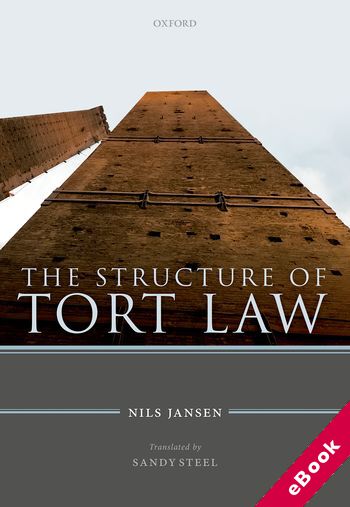
The device(s) you use to access the eBook content must be authorized with an Adobe ID before you download the product otherwise it will fail to register correctly.
For further information see https://www.wildy.com/ebook-formats
Once the order is confirmed an automated e-mail will be sent to you to allow you to download the eBook.
All eBooks are supplied firm sale and cannot be returned. If you believe there is a fault with your eBook then contact us on ebooks@wildy.com and we will help in resolving the issue. This does not affect your statutory rights.
This English translation makes available to anglophone readers a modern classic of German tort theory. It argues that modern German tort law is faced with doctrinal tensions based on problematic theoretical assumptions which stem from historical conceptions of tortious liability, inappropriate to modern times.
From a theoretical perspective, it argues against the prevalent doctrinal view in Germany that conceives of tortious liability as split between two tracks - a fault-based track and a strict liability track - each with different normative foundations. Instead, Jansen asserts that there is no rigid distinction between the normative foundations of each form of liability. Rather, both fault liability and strict liability in German law, and indeed other European systems, are best considered as resting upon the unifying theoretical structure of outcome responsibility. The book thus places responsibility rather than wrongdoing at the centre of the normative foundations of tort law. Historically, the book traces in detail how conceptions of tort liability have changed from Roman law to contemporary legal doctrine. It shows how particular historical understandings of the normative basis of tort law have led to continuing normative tensions in contemporary doctrine. Finally, the book examines how a reconstruction of modern German - and, indeed, European - law as based upon outcome responsibility should affect its doctrinal structure.
This book makes contributions to the study of the theory, history, and doctrinal structure of tort law. While drawing on and explaining German tort law, its comparative, theoretical, and historical analysis will be of interest to scholars in all legal systems.